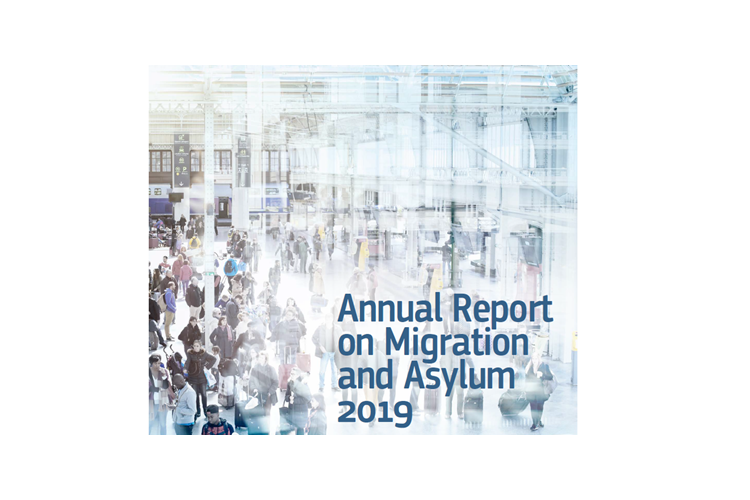Increase in asylum applications, enhanced reception capacities and integration measures, strengthened legal pathways to migration and further support to return were some of the key trends in 2019.
2019 marked the first
increase in asylum applications since 2015. The report found that the number of asylum seekers applying for international protection in the EU increased by 11.2 % compared with 2018; however, Member States did not report negative impacts on their capacity to cope with the changes. At the same time, Member States worked to improve their national asylum systems and reception and processing capacities. At EU level the implementation of the European Agenda on Migration continued, with the aim to move to durable solutions in the area of asylum.
The Member States that carried out
relocation and resettlement activities usually did so in the framework of EU programmes, though national programmes and humanitarian admission schemes also played a role. To respond to the increase in asylum applications, hotspots established in Greece and Italy continued to operate and a new temporary relocation scheme was established through the cooperation of several Member States. Altogether almost 30 000 people were resettled in 2019 - the vast majority of resettled people were Syrian nationals.
Legal pathways to migration were strengthened; Member States
simplified requirements to meet the needs of their labour markets, both for high-skilled workers and to a lesser extent for medium skilled occupations where labour shortages were identified. About a third of Member States adopted measures aimed at supporting start-ups, entrepreneurs and investors.
New integration measures at EU and national level focused on socio-economic integration, notably labour market integration, language acquisition, education and migrant empowerment. Some countries introduced mandatory inclusion policies and programmes. Member States’ integration activities targeted, in particular, beneficiaries of international protection, children and young people.
The Member States and Norway also took actions to ensure
swifter and more effective return of irregular migrants. New legislative changes were notably introduced regarding return decisions and activities were implemented to further support assisted voluntary return. Altogether 161 755 return decisions were issued in 2019. The European Commission continued to work with third countries on the implementation of the existing 23 readmission instruments; moreover, the enhanced mandate of the European Border and Coast Guard Agency (Frontex) now also includes a role to support Member States on return matters.
To download the Annual Report on Migration and Asylum 2019 please click
here.
To download the Inform of the Report please click
here.
To download the Flash (one page) of the Report please click
here.
Page


